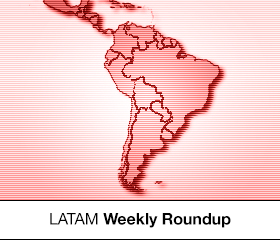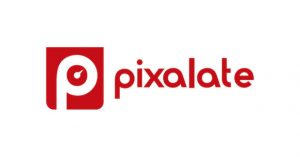Hot Topics in LATAM Programmatic; Navegg Announces Deals in Central America
by on 5th Sep 2016 in News


In this week's LATAM Roundup: some of the hot topics in programmatic Latin America after a major event in Sao Paulo; Navegg's expansion in Latin America through contracts with publishers and advertisers in Honduras, Nicaragua, and El Salvador; and, finally, data about Brazil's e-commerce in the first semester of 2016, registering solid growth and R$19.6bn (£4.5bn) in revenue.
Hot Topics in LATAM Programmatic Media
During IAB’s Ad Tech and Data, which happened last week in Sao Paulo, some of the local leaders discussed the main topics of programmatic media market in Latin America including geolocation and assertive use of data, among others. Some of them provoked buzz among participants:
Fraud
“NOW is the perfect moment for the Brazilian and Latin American markets to thing about fraud, before it becomes epidemic, as it already is in other markets. Be ahead of the game and learn with what we are experiencing: there is no return on investment when you buy non-human traffic."
– Mike Zanies, CEO, TAG (USA)
Martech
“I prefer using the term ‘programmatic marketing’, because saying ‘programmatic media’ is too restricting. It’s more than that; and programmatic marketing allow us to manage different points of contact in different channels and platforms."
– Joanna O’Connell, Chief Marketing Officer, MediaMath EU
Data-driven creative
“The [campaign creation] process can be improved when companies put all the data on the table and make it accessible to the creative workers — media, brand, production, and design teams. They should work collaboratively since the briefing."
– Derek Dunfield, Product Manager, Google.
Staying alive: Display market
“Even with advanced tech, such as virtual reality, the relationship between the user and display shouldn’t change that much. It’ll still call attention. The way we work today is trying to deliver the message according to the user interests; and this relationship won’t change, it will evolve. Identifying the users in different channels, for example.”
– Fernando Tassinari, General Manager, Criteo Brazil.
New media worker skills
“We see advertisers warning that their marketing budgets will switch from branding to performance. This means that having analytics skills is already important. Media isn’t playing around anymore, a strategic understanding of technology is already required."
– Fabio Zucchetto, Senior Product Specialist, Twitter LATAM
A path to adopting a DMP
“Do you know your customers? Do you have a broad perspective of them, in multiple devices? Those are topics that can bring you to DMP. Grouping them is the second stage. And third, if you can act on your customers with what you have now. If you said yes to those three topics, you are looking into DMPs."
– Guilder Toussaint, Alliance & Channel Director, Oracle LATAM.
Navegg Expands international businesses through contracts in Central America
The Brazilian DMP Navegg announced a series of new deals and contracts with media conglomerates in Latin America marking their expansion in the region. The strategy is to form a web of partners to establish Navegg in different countries in South America and especially Central America.
La Prensa, based in Nicaragua, El Salvador’s Grupo Dutriz, OPSA Group based in Honduras, Prensa Libre, from Guatemala, and Costa Rica’s Teletica, are among Navegg’s new partners in the media side. On the advertisers side, businesses from several sectors: most important names are Casa Pellas, from Nicaragua, the telco Tigo; UTEC education group, as well as the biggest retail group in Honduras, JetStereo.
In Mexico, Navegg’s contracts are with Grupo Acir, a radio broadcasting group, and the publisher Cultura Coelctiva.
According to Navegg’s general manager, Pedro Cruz, investing in those markets means investing time and resources; but understanding their restrictions and unique characterises also means boosting the digital market as a whole. “Our Latin American success is associated with a deep understanding of the local reality and business scenario. Also, a strong consulting work, supporting the main players of each market”, said Cruz.
Brazilian e-commerce: up 52% in 2016’s first semester
Ebit, the Brazilian company measuring online commerce, launched their Webshoppers report with main numbers of the country’s e-commerce performance between January and July. Revenues have reached R$19.6bn (£4.5bn), increasing by 5.2%, compared to the same period in 2015.
The main product sold online are smartphones – 26% of the total. Also, 37% of users who searched for smartphones had already searched for online information before the conversion. Only 3% of its consumers didn’t have information about products before buying it online.
One of the main reasons behind this growth was a 7% growth in the average purchase, which now stands at R$403 (£93). This growth happened mainly due to the increase of local prices. Social classes AB have increased their ration in total online purchases. Finally, an increase by 31% in the active online users – people who have bought at least one previous purchase in the period – have also contributed to e-commerce’s good performance.
“We expect a higher increase in the second semester, driven by Black Friday and Christmas sales”, said André Dias, COO, Ebit. Brazil’s e-commerce forecast is to reach R$44.6bn in revenues in 2016 (£10.29bn), representing an annual growth by 8% compared to 2015’s revenues.








Follow ExchangeWire